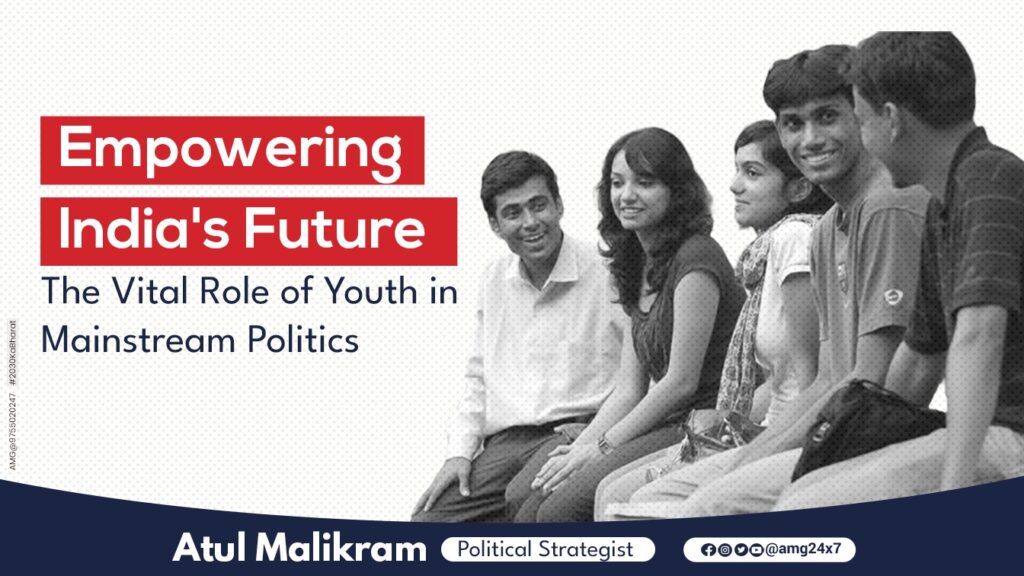India, a nation pulsating with energy, innovation, and aspiration, boasts a young demographic that is the envy of many countries. The youth, comprising a significant portion of the population, hold immense potential to steer the country towards progress, development, and inclusive governance. In the complex landscape of Indian politics, their involvement is not just desirable but crucial for a thriving democracy.
Firstly, the youth bring fresh perspectives and innovative ideas to the table. They are not tethered to conventional ideologies, often breaking free from the shackles of traditional politics. Their dynamism and forward-thinking outlook are the driving forces for change, fostering a more progressive and adaptive political environment.
Moreover, the youth possess a deep-rooted sense of social awareness and are more inclined towards issues like climate change, social justice, and economic equality. Their active participation in politics infuses these critical matters into the political discourse, prompting policymakers to address these concerns effectively.
Furthermore, the infusion of youth in politics brings a sense of inclusivity. It encourages diversity in thought, representation, and leadership. This diversification ensures that the voices and concerns of all segments of society are heard and addressed, leading to more comprehensive policy-making.
However, despite their potential, the youth often face impediments in mainstream politics. Challenges like limited access to resources, lack of opportunities, and the dominance of established political hierarchies hinder their entry and growth in the political arena.
Efforts must be made to create a conducive environment for the youth to actively engage in politics. Political parties need to provide more platforms and opportunities for young leaders to rise through the ranks. Mentorship programs, internships in governance, and support for grassroots initiatives can nurture their leadership skills and prepare them for larger roles in politics.
The advent of social media and digital platforms has significantly amplified the voices of the youth. These tools serve as catalysts for mobilization, enabling them to organize movements, raise awareness, and hold authorities accountable. Harnessing the power of these mediums effectively can empower the youth to influence political decisions and shape the nation’s future.
In conclusion, the active involvement of the youth in mainstream Indian politics is not just a necessity but a strategic imperative. Their energy, vision, and commitment to progressive ideals are indispensable for a vibrant and inclusive democracy. By breaking barriers, fostering inclusivity, and providing avenues for growth, India can harness the potential of its youth, paving the way for a brighter and more promising future.

